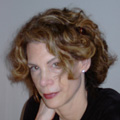Prof. Dr. Marcia Pally
Speaker

Prof. Dr. Marcia Pally teaches at New York University in Multilingual Multicultural Studies and is a permanent Fellow of the New York Institute for the Humanities. She spoke at the World Economic Forum in 2010 and has been awarded the German Research Foundation’s prestigious Mercator Guest Professorship for Humboldt University, Berlin, from 2012 to 2013. Additionally, Pally has been a Fellow at the Institute for Advanced Study in Berlin in 2007 and 2010. In addition to her academic work, Pally is a frequent columnist in the US and Europe, writing for The New York Times, The Guardian, USA Today, Beliefnet, Religion & Ethics, TruthOut, Telos, The Nation, Internationale Politik (German Council on Foreign Relations), Die Zeit, Frankfurter Allgemeine Zeitung, Süddeutsche Zeitung, die Tageszeitung, Berliner Zeitung, Tagesspiegel, Frankfurter Rundschau, and Cicero magazine, among other periodicals. Pally has lectured at numerous universities and professional associations in the US, the UK, and continental Europe. Her most recent books are: America’s New Evangelicals: Expanding the Vision of the Common Good (2011), Die hintergründige Religion: Der Einfluss des Evangelikalismus auf Gewissensfreiheit, Pluralismus, und die US-amerikanische Politik [Religion behind the Scenes: The Influence of Evangelicalism on Freedom of Conscience, Pluralism and US Politics] (2008).
- Preservation in the face of change: From your point of view, what does this mean in the light of the processes of globalisation and glocalisation?
Cultures always preserve a great deal and change slowly. Like every generation in the modern era, we are impressed by the newest changes and technologies and declare that they are either saving or destroying the world – and sometimes both. The Internet will bring great things to all from Beijing to Brooklyn, or it is destroying our minds. This is giving ourselves undue importance. We should exaggerate less: even the transition from revering the past to our current fascination with newness took centuries to evolve. One might think, for instance, that Germany – a first-world country occupied for decades by the US – would be quite similar to it. But I find the differences profound.
- In the face of increasing disorientation, what is it that holds a society together in the age of globalisation, and what drives it apart?
‘Increasing disorientation’ compared to what – the two world wars of the twentieth century, the nearly continuous wars and profound politico-cultural changes of the nineteenth, the paradigm-shattering ideas of the Enlightenment and scientific revolution of the seventeenth and eighteenth?
- Our society stands between traditional values and local everyday routines on the one hand, and between rapidly changing attitudes and behaviours on the other hand. What is the role of women concerning these processes of change in the realm of civil society?
The role of women is in everything. Would you ask that question about men?

